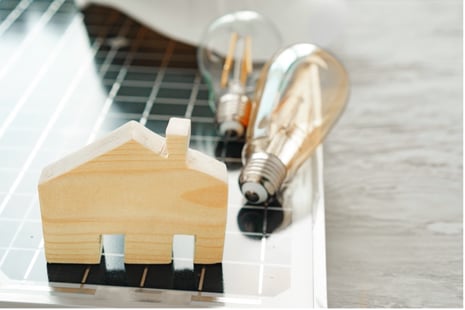
Solar panels have changed the renewable energy industry in more ways than ever thought possible. Read more to learn about the history of solar and how we got to where we are today.
Solar panels have changed the renewable energy industry in more ways than ever thought possible. Fully utilizing clean energy, as opposed to burning fossil fuels, has enabled homeowners, business owners, and corporations alike to reduce their carbon footprint and lock in their electricity rates once and for all. But how did we get to where we are today? Solar technology itself is not a new concept. It has slowly evolved as technology has advanced. Evidence dates back as far as the 7th century, but it wasn’t until the last century that the first photovoltaic cells were produced, which make up modern solar systems. Learn more about the history of solar here.
Photovoltaics (PV) or solar cells convert sunlight into direct current (DC) electricity. DC electricity is a uni-directional current, so the flow of charge is always in the same direction. PV systems then invert the DC electricity to alternating current (AC) electricity which is what is compatible with the appliances we use in our homes and is interconnected to the larger grid. AC electricity is an electric current that periodically reverses direction and changes its magnitude continuously with time in contrast to direct current (DC), which flows only in one direction
Since the 1980s, photovoltaics have been a common power source for consumer electronic devices and have grown to make up rooftop solar systems capable of powering homes and buildings. Today, solar power is more affordable than ever before. As technology, science, and manufacturing continue to advance, this makes it easier and cheaper to make the switch to solar power. With a vast number of financial incentives, aid, and rebates available, the choice to switch to solar becomes reasonably simple. Combining this with the long-term savings and locked-in energy rates, solar PV systems are a smart investment.
If you think you’re ready to install a rooftop solar PV system, here are a few questions to ask yourself:
- Do you own or rent your home?
- How long will you live in this home?
- How much energy do you consume?
- Is your house positioned in direct sunlight?
- What is your budget for the project?
There are solar options available for everyone, regardless of the answer to any of these questions, but there are a few things to consider for a rooftop solar PV system for your home. If you rent rather than owning your home, you’ll have to receive approval from the property owner before installing solar panels. For solar to be a valuable investment, it is best if you’re planning to live in your home long-term (7-15 years), although solar systems have been proven to increase your home’s value should you choose to sell. Other factors like your energy usage, roof positioning, and budget can all be evaluated with a solar expert to determine your solar readiness.
With DFW Solar Electric, all of your residential and commercial solar needs will be met by our experienced solar professionals. They will help guide you every step of the way, determining the condition of your roof, shading and angle of the sun, and any local restrictions. Our team will start with a free, no-obligation proposal and answer any initial questions you may have about the products, process, or financing. From there, a site survey will be conducted by one of our solar professionals to look at your electrical box, take measurements of your roof, and to finalize your solar PV system design. Last but not least, our team will also assist with financing, payment options, and federal, state and local financial incentives.
If you’re ready to switch to solar or learn more about DFW Solar Electric, contact us today!
Learn more about saving with rooftop solar panels and residential solar and homeowner’s associations.
Our Solar Energy Solutions
Are you thinking about a solar panel system for your home or business? Give us a call at 972-827-7651 or click HERE to get a free, no-obligation consultation, and we'll perform a detailed analysis to help you determine which solar panels make sense for you.
Comments